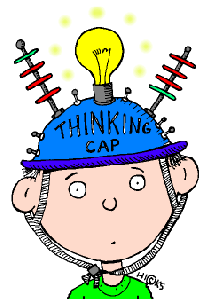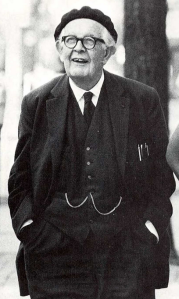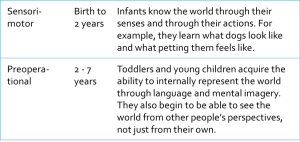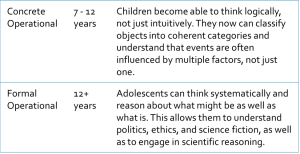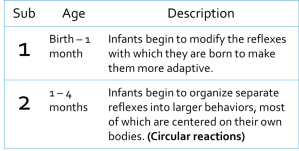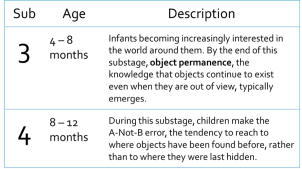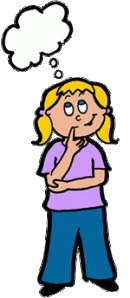Children’s Cognitive Development
By: Carolina Bedoya
Piaget’s View of Child Development
- Jean Piaget’s theory remains the standard against which all other theories are judged.
o Often labeled constructivist because it portrays children as constructing knowledge for themselves.
- Piaget sees children as active, able to learn many lessons on their own and sees them as intrinsically motivated to learn.
Piagetian Theory:
Role of Nature and Nurture
- Piaget believed that nature and nurture interact to yield cognitive development.
o Adaptation: the tendency to respond to the demands of the environment to meet one’s goals
o Organization: the tendency to integrate particular observations into coherent knowledge
Piagetian Theory:
Processes Underlying Development
- Three processes work together to modify our schemes and propel development.
o Assimilation: process by which people translate incoming information into form they can understand; attempt to make info part of scheme
o Accommodation: process by which people adapt current schemes and create new schemes in response to new experiences
o Equilibration: process by which people balance assimilation and accommodation to restructure schemes to create stable understanding of world
Children progress through four stages of cognitive development, each building on the previous one
Piaget’s Stages of Cognitive Development
Sensorimotor in Sub-stages:
Preoperational Stage
(2 to 6 years)
- A notable acquisition is symbolic representation, the use of one object to stand for another.
- A notable limitation is egocentrism.
- Egocentrism: the tendency to perceive the world solely from one’s own point of view.
Concrete Operations Stage
(7 to 12 years)
- Children begin to reason logically about the world.
o Inductive Logic: Reasoning from the particular to the general; from experience to broad rules.
o They can solve conservation problems, but their successful reasoning is largely limited to concrete situations.
- They understand reversibility (that actions and mental operations can be reversed).
- Have difficulty with thinking systematically and using deductive logic (reasoning from the general to the particular; reasoning from a theory to a hypothesis).
Formal Operations Stage
(12 years and onward)
- Cognitive development culminates in ability to think abstractly and to reason about hypothetical situations.
- Individuals can now:
o Imagine alternative worlds
o Reason systematically about all possible outcomes of a situation
o Design systematic plans for investigating phenomena (e.g., pendulum problem; sandwich task)
Please visit the Child & Family WebGuide if you would like even more information on Cognitive Development
http://www.cfw.tufts.edu/?/category/infants/16/topic/brain-development/76/

